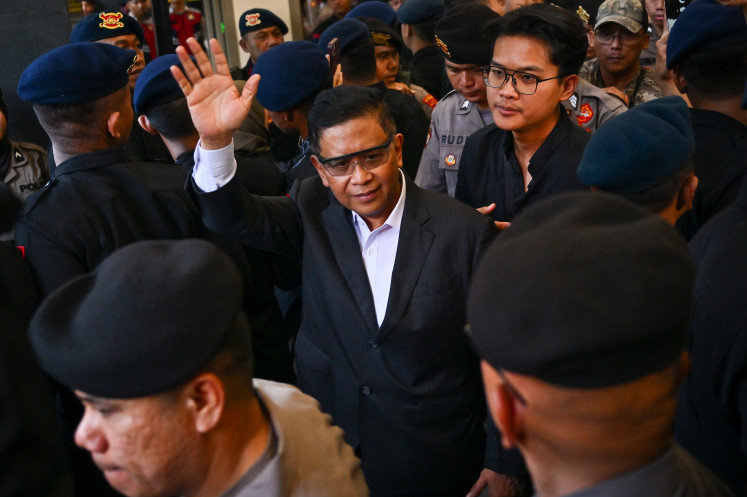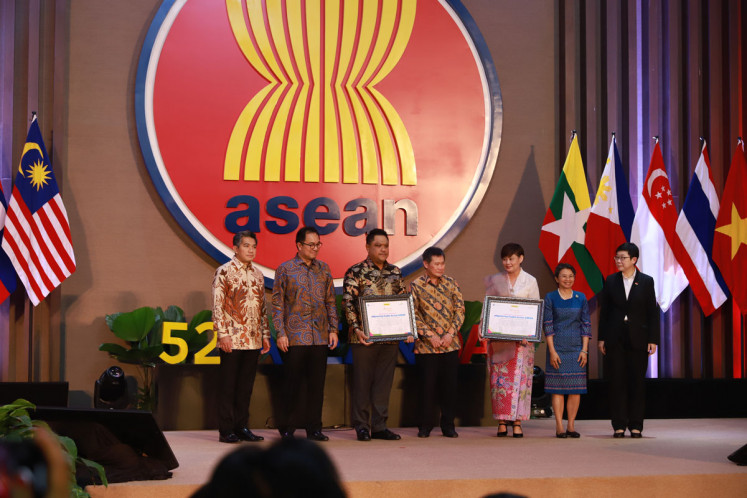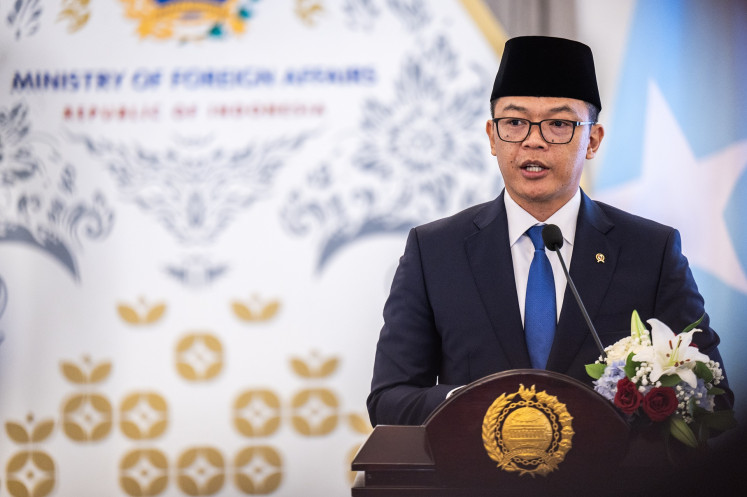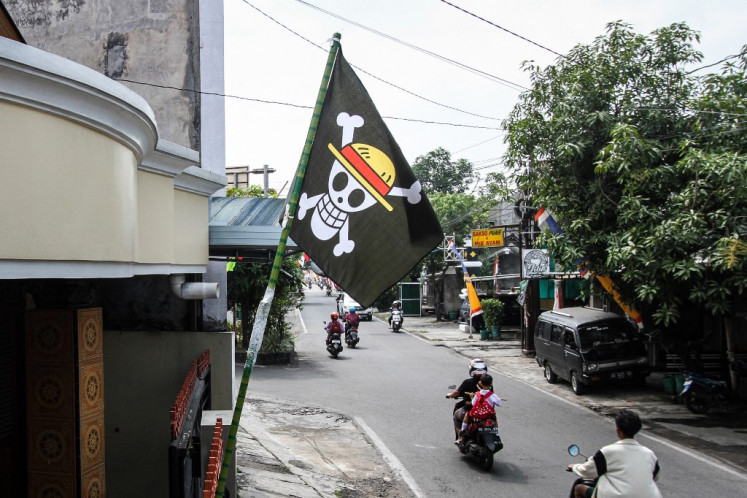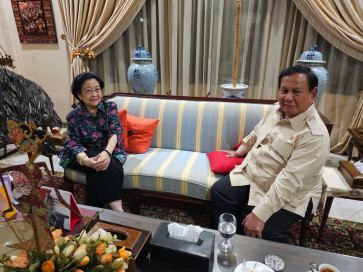Popular Reads
Top Results
Can't find what you're looking for?
View all search resultsPopular Reads
Top Results
Can't find what you're looking for?
View all search resultsReading Megawati's silhouette: Between harmony, hegemony and democracy
The President's recent move to grant amnesty to Hasto Kristiyanto presents a case study for the use of political diction in the continuing power play between the hegemony of his "grand coalition" and the counterstrategy of PDI-P matriarch Megawati in defining her party's stance.
Change text size
Gift Premium Articles
to Anyone
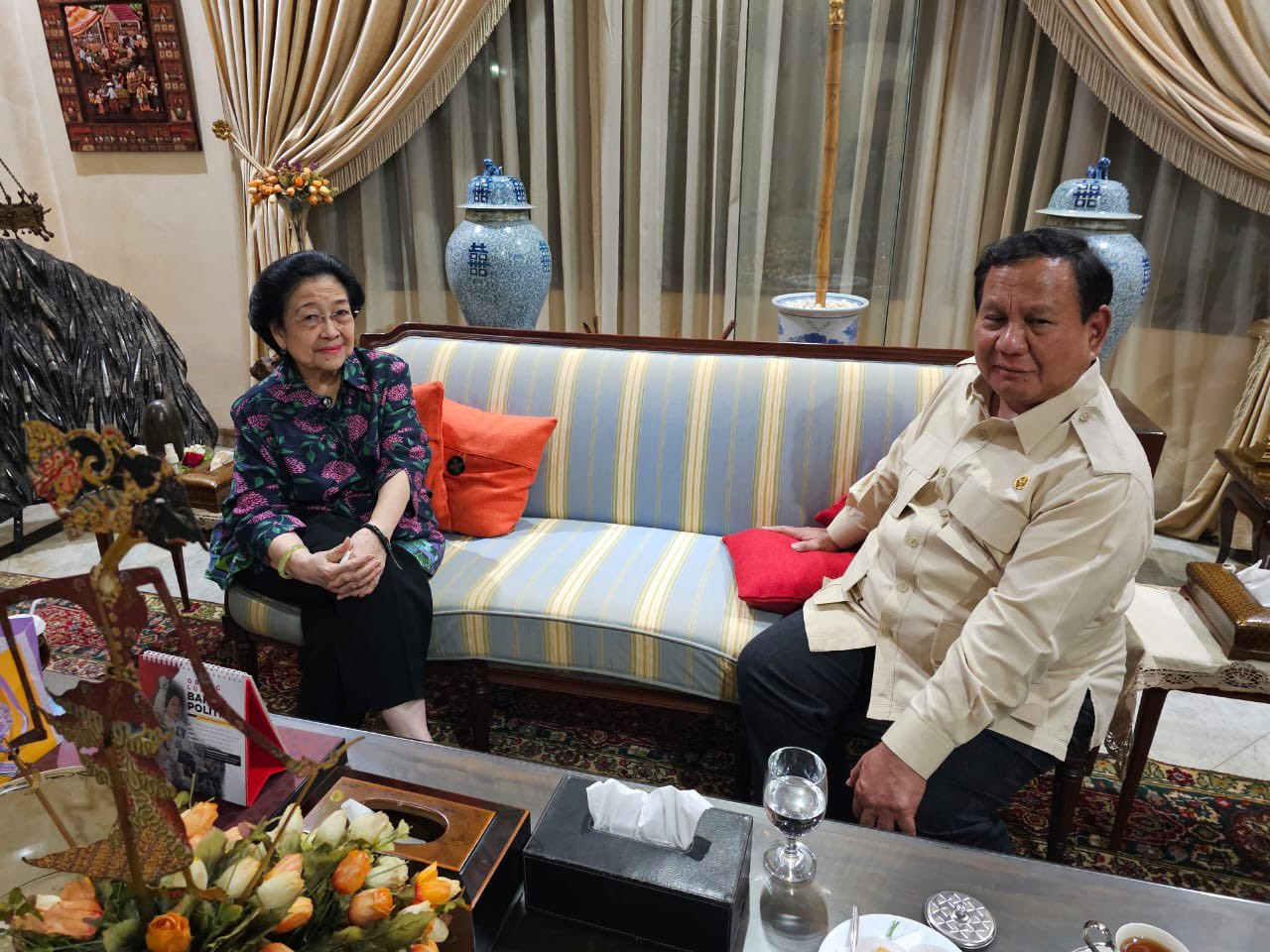 Megawati Soekarnoputri (left), chairwoman of the Indonesian Democratic Party of Struggle (PDI-P), hosts a tête-à-tête with President Prabowo Subianto at her Menteng residence in Central Jakarta on April 9, 2025, in the first meeting between the two leaders since Prabowo won the 2024 presidential election.
(Courtesy of/Gerindra Party)
Megawati Soekarnoputri (left), chairwoman of the Indonesian Democratic Party of Struggle (PDI-P), hosts a tête-à-tête with President Prabowo Subianto at her Menteng residence in Central Jakarta on April 9, 2025, in the first meeting between the two leaders since Prabowo won the 2024 presidential election.
(Courtesy of/Gerindra Party)
I
ndonesia's political theater was once again marked by captivating drama following President Prabowo Subianto's granting amnesty to Hasto Kristiyanto, the former secretary-general of the Indonesian Democratic Party of Struggle (PDI-P). This move, touted as an effort for "national unity and harmony", has sparked intense speculation about the position of Megawati Soekarnoputri and her party.
The public, especially civil society, anxiously awaits: Will the PDI-P, the only party outside of the government, join Prabowo's so-called grand coalition or choose the path of a "balancer", as Megawati promised?
Language is a reflection of thought, even unspoken intentions. The claim of President Prabowo, as well as those around him, that Hasto’s amnesty is for "national unity and harmony" needs careful scrutiny. Is this narrative purely altruistic, or does it conceal deeper political calculations?
In this context, the amnesty can be read as a "tender" or even a "soft invitation". The choice of "unity" in the wording is an attempt to provide moral legitimacy to an action that is politically very strategic. This is language that tries to cloak a political raison d'être in the guise of universal good.
When Megawati speaks of being a "balancer" and rejects the term "opposition", ostensibly because she believes the presidential system does not recognize opposition, this is a statement rich in meaning. From Ricoeur's perspective (Hermeneutics and the Human Sciences, 1981), this is not merely word choice, but an unveiling of complex thought.
Her rejection of the term "opposition" indicates an unwillingness to confront directly, perhaps due to pragmatic considerations or even a desire to remain within the circle of influence. However, the word "balancer" is powerful diction. It implies an active role in maintaining checks and balances, but without direct confrontation.
This nuanced language attempts to redefine the PDI-P's standpoint, seeking room for influence without having to become a political "enemy". This is an effort to maintain political autonomy and relevance in a subtle, yet potentially very effective, way.





